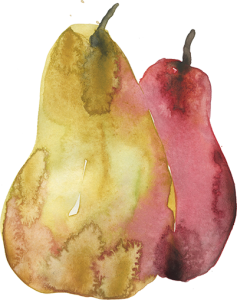Award Winning Author
Face Reading with Before & After Photos
Iron Deficiency – Conventional and Alternative Views
Iron deficiency is a common problem and one that you can correct naturally. Here’s how to favor iron-rich foods and avoid those foods that deplete your iron.
Health professionals agree that iron deficiency is a common problem and that there are two obvious ways to remedy the situation. However, their recommendations vary. Alternative health professionals offer an insight not found in conventional sources. I’ve presented here their mutual guidelines—and where they differ—so you can make an informed decision.
The first step to assure adequate iron is to enjoy iron-rich foods. Since iron is found in virtually every naturally occurring food, presumably you should be getting enough.
However, there are foods that can deplete your iron reserves. Therefore, the second recommendation is to avoid the iron robbers; which, according to both traditional and alternative authorities include caffeine, soft drinks, aspirin, antiacids and phosphate-containing soft drinks and ice cream. Teens and people eating junk food may be deficient because they’re not, according to conventional nutrition, eating enough iron-rich foods.
But, hold on. Most pizza, cold breakfast cereal, bread, cookies, crackers and pasta are made from iron-enriched flour. Even if a teen isn’t eating broccoli, her diet is laced with iron-fortified pizza and snacks. So why the deficiency? Something is not adding up.
Alternative sources hold that nutrients from whole, natural foods are more effectively assimilated than the nutrients—natural or otherwise—from refined foods. While an iron-enriched infant formula contains iron, mother’s iron-rich milk is preferable.
The same sources also hold that your iron is squandered when you eat highly refined foods. Here’s why. Refined foods like sugar and flour challenge your digestive system. Refined wheat, for example, has its iron and over 40 other nutrients removed, leaving only carbohydrate and some protein. For digestion to occur, your gut first attempts to patch up this broken grain. It does so by extracting the missing nutrients from your bones, tissues and nerves. Thus, eating refined foods—even a bowl of iron-fortified Wheat Chex—depletes your reserves of iron and other nutrients.
If your diet is generally good but you eat a fair amount of sugar, white bread or pasta, be aware that this can undermine your health in the long term. People who resolve to more conscientiously avoid refined foods often note a corresponding increase in energy as their own nutrient reserves become replenished.
Therefore, to assure you are getting and retaining adequate iron, please enjoy a varied whole foods diet. And, starting today, minimize your use of all iron-draining substances, especially refined foods. Foods particularly high in iron include meat, green vegetables, blackstrap molasses, seaweed, poultry, fish, eggs, prunes and legumes.
While whole grains contain iron, they contain phytic acid which inhibits iron absorption. To eliminate this problem, ferment, sprout or soak your grains. This is accomplished by favoring sourdough or sprouted breads and by soaking whole grains for 8 to 10 hours prior to cooking.
Iron deficiency symptoms may include anemia, fatigue, digestive problems, decreased alertness, intolerance to cold, susceptibility to chronic infections and frequent colds. People at high risk of iron deficiency are menstruating women, children, teenagers and anyone lacking adequate nutrition.
Note, however, that not everyone is iron deficient and iron overload is problematic. Non-menstruating women and men susceptible to hemochromatosis can have toxic amounts of iron in their bodies. Should you have excess iron, an easy—and altruistic—way to lower your iron levels is to periodically donate blood to the Red Cross. If you are concerned about an iron deficiency or excess, check with your health care practitioner.
The accompanying recipe uses one of my favorite iron-rich foods, dulse.
May you be well nourished,
Rebecca Wood


Thank you for this article.
I don’t eat a lot of wheat or dairy but perhaps need to cut down more on the other grains.
How about lentils?
Good question, Vanessa. I wouldn’t possibly know without having all of your information (as per a Face REading and Diet Consult). Today most people with gastrointestinal issues and/or chronic health problems find they do best on a grain-free, dairy-free diet. If you easily digest lentils, they’re a great food.
Hi loved the article, I’m going to implement these changes in my diet. I have suffered with low iron most of my life and I am going to make choices to change it instead of living with it.